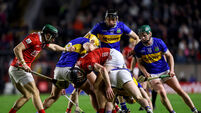CIA 'held al-Qaida suspects under water'
The CIA has used harsh interrogation techniques against high-level al-Qaida figures, including forcibly submerging them under water until they fear they will drown, it was reported today.
The secret methods of extracting information from al-Qaida leaders and top operatives were endorsed by the US Justice Department and the CIA after September 11, the New York Times reported.














